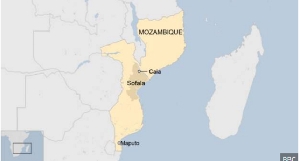Regional News of Monday, 24 November 2014
Source: GNA
Ghana losing productivity through mental illnesses
Nana Munko Eku VIII, Chief of Omankrado of Abura Ansafona, has said with about 2.5 million Ghanaians suffering mental illness and 7,000 considered serious, the nation is losing abundant productive labour force and high productivity.
Out of the 7,000 classified as serious, majority are women who have suffered broken marriages and relationships, examination failures or were challenged with abject poverty, thus forcing many to take to drinking hard liquor or doing drugs.
Nana Eku VIII, who said this at a community durbar in Abura Dunkwa, noted that the development painted a bad picture of building an integrated nation and was an indication that, “We have lost our national conscience for pro.”
The durbar, organised by Basic Needs Ghana and Mental Health Society of Ghana (MEHSOG) with UKAID, sought to raise awareness of issues bordering mental illness and how victims had been affected.
It forms part of a four-year project implemented by Basic Needs Ghana and MEHSOG to support government to build a national health system that effectively and efficiently respond to the mental health needs of the population.
Nana Eku VIII observed that many of the patients roaming the streets were energetic youth who could contribute highly to productivity and economic growth, but said regrettably, mental health issues remained low priority to government.
He said a lot of mental health victims were painfully enduring widespread stigma, neglect, and discrimination.
The chief, therefore, called on the Government, nongovernmental organisations and civil society groups to redirect their financial resources towards building a viable mental health system to protect the youth and help the mentally ill persons realize their dignity in society.
The major challenges facing mental health in Ghana, officials say, are the provision of essential medicines, lack of legislative instrument to back the Mental Health Law, inadequate human and financial resource, and insufficient human rights protections for the mentally ill.
The theme for the event was: “Inclusion of people with mental illness and epilepsy in government social intervention programmes at the local governance level to enhance recovery, participation and reintegration for national development.”
Mr Humphrey Koffie, Executive Director of MESHOG, expressed worry that more than 80 per cent of the mentally ill were being excluded from the government’s social intervention programmes, and asked for their inclusion.
He said: “We are pleading through the district chief executive that the intervention programmes at the district levels such as the NHIA (National Health Insurance Authority) registration for vulnerable groups of people by ensuring that they enjoy the same rights as every other Ghanaian”.
He urged the assemblies to allow the mentally ill persons to enjoy the two per cent common fund for persons with disabilities, livelihood empowerment against poverty and other social intervention programmes.










